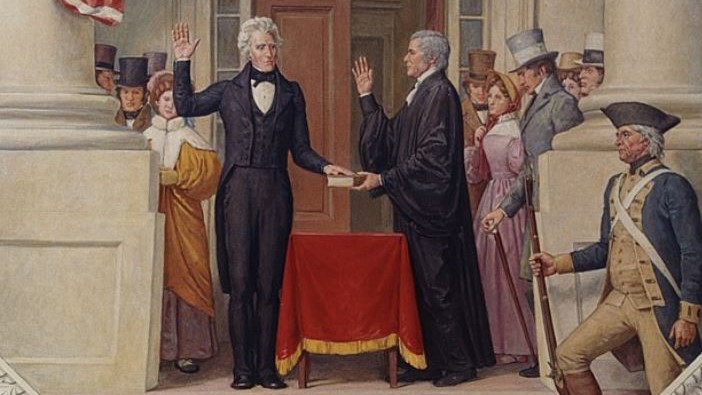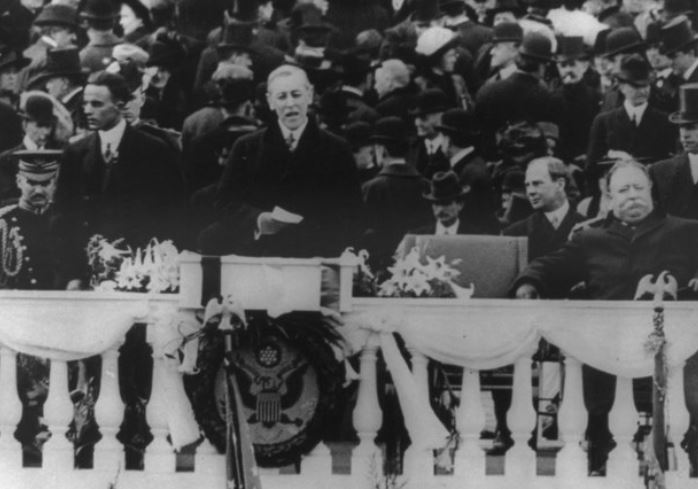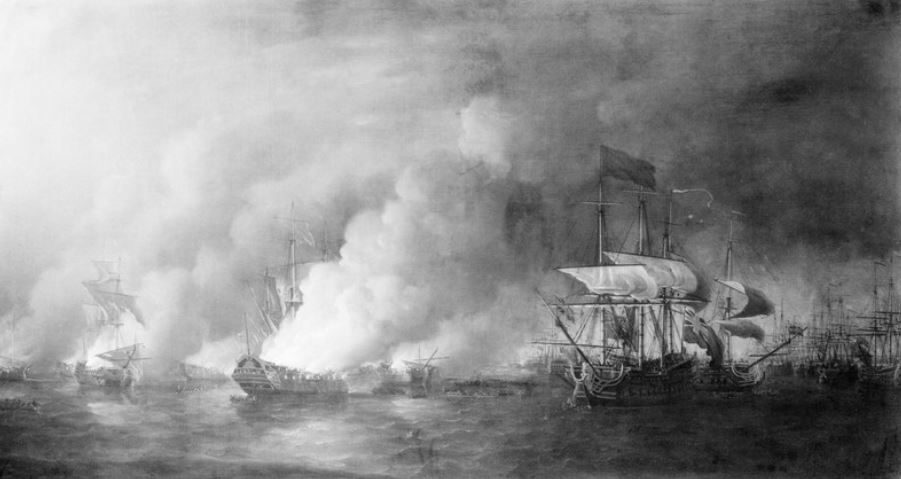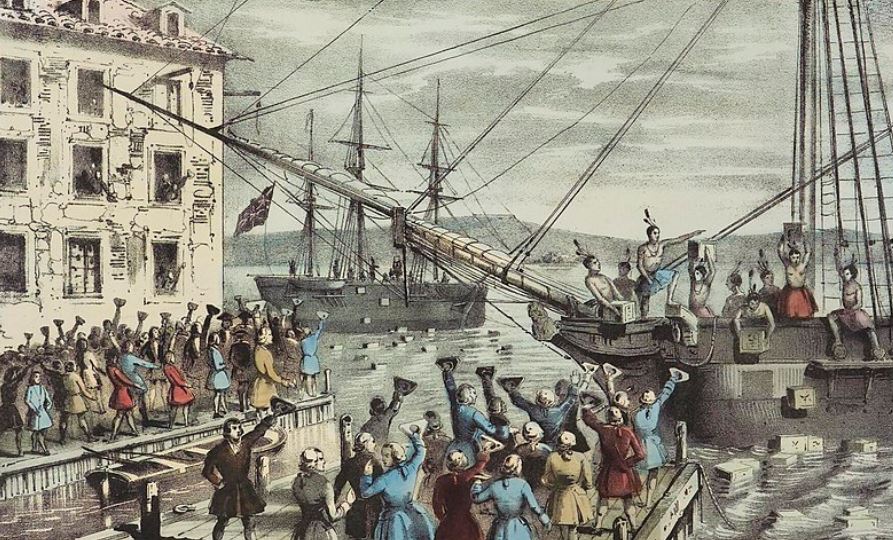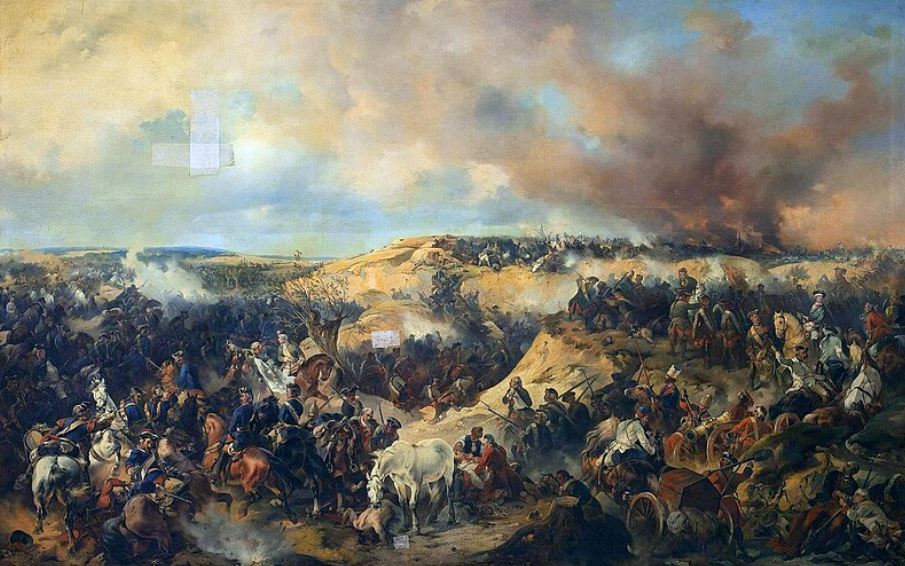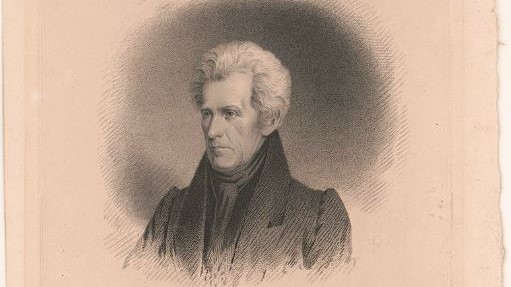Andrew Jackson was the seventh President of the United States. He was often remembered as a champion of the common man. He rose from humble beginnings to become a national hero and two-term president. However, beneath the populist veneer lay a leader whose actions frequently bordered on tyranny.
This article explores the darker side of Andrew Jackson’s presidency, revealing how his policies and decisions often undermined democratic principles and expanded executive power at the expense of other branches of government and marginalized groups.
1. Andrew Jackson and the Trail of Tears
Perhaps the most egregious example of Andrew Jackson’s tyrannical tendencies was his treatment of Native Americans.
In 1830, Andrew Jackson signed the Indian Removal Act into law. This legislation allowed the federal government to exchange Native American land east of the Mississippi for new lands to the west.
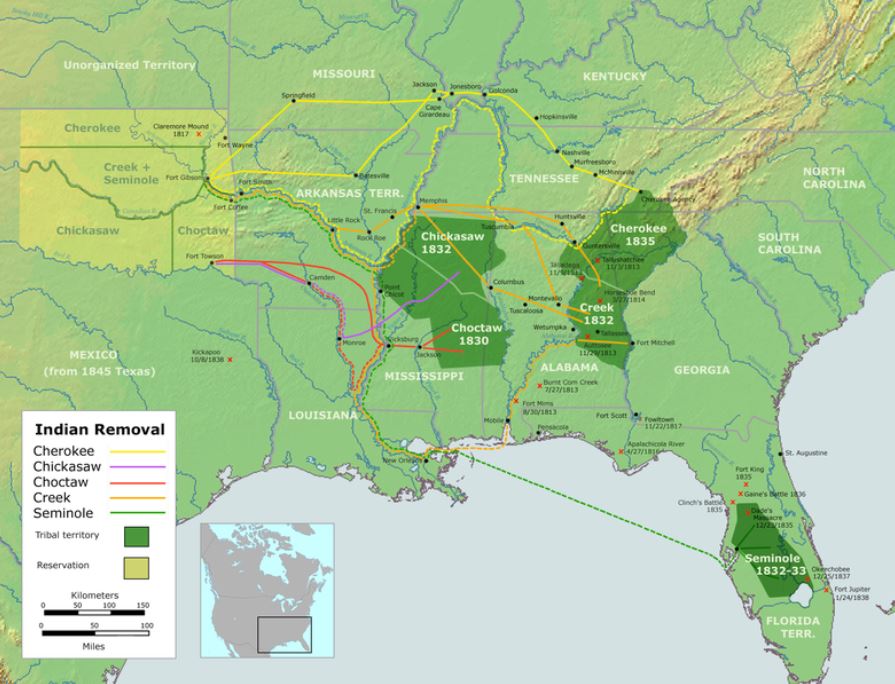
Andrew Jackson believed there was no practical means of stopping white settlers from encroaching on Native American lands. He argued that the best way to prevent bloodshed was for the tribes to move west of the Mississippi.
This policy opened up land for white settlement but at a terrible cost to Native Americans.
The forced relocation of Native American tribes resulted in thousands of deaths.
The Choctaw chief described it as a “Trail of Tears,” a name that has stuck ever since.
The most violent episode occurred in late 1838 when 13,000 Cherokees were removed to Oklahoma by an armed force led by Winfield Scott. An estimated 4,000 Cherokees perished during this journey.
Jackson’s Indian removal policy didn’t just ignore the human cost; it also disregarded the rule of law.
In the case of Worcester v. Georgia, the Supreme Court ruled that Georgia could not impose its laws on Cherokee tribal lands. Jackson reportedly responded,
“John Marshall has made his decision; now let him enforce it!”
This blatant disregard for the Supreme Court’s authority set a dangerous precedent for executive overreach.
2. Andrew Jackson and the Bank War
Andrew Jackson’s battle against the Second Bank of the United States further illustrates his authoritarian tendencies.
He believed that banks and financial institutions were responsible for the boom and bust cycles that caused citizens to fall into debt and ruin.
When Congress passed a bill to recharter the Bank in 1832, Andrew Jackson issued a veto.
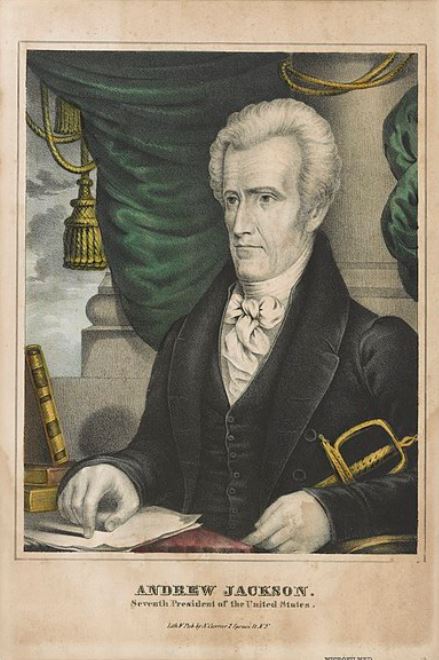
While presidents have the constitutional right to veto legislation, Andrew Jackson’s veto message went beyond simply rejecting the bill. He argued that the Supreme Court’s previous ruling on the Bank’s constitutionality was not binding on the executive branch. He effectively claimed the right to interpret the Constitution himself.
Andrew Jackson didn’t stop at vetoing the recharter.
In 1833, he ordered the removal of federal deposits from the Bank and placed them in smaller state banks.
When his Treasury Secretary William Duane refused to carry out this order, Andrew Jackson dismissed him and appointed Roger Taney as acting secretary to execute the plan.
This action was taken without congressional approval and against the advice of many of Andrew Jackson’s advisors. It led to a motion of censure against Andrew Jackson in the Senate, spearheaded by Henry Clay.
The economic instability that followed these actions contributed to the Panic of 1837, which occurred shortly after Andrew Jackson left office.
Andrew Jackson caused the Panic of 1837 by dismantling the Second Bank of the United States, which destabilized the banking system. His Specie Circular of 1836 mandated land payments in gold and silver, depleting banks’ reserves.
Andrew Jackson’s policies led to rampant speculation and inflation. When speculative bubbles burst, banks failed, and credit markets collapsed, triggering the financial panic and subsequent economic depression during Martin Van Buren’s presidency.
3. Andrew Jackson’s Expansion of Executive Power
Throughout his presidency, Andrew Jackson expanded executive power in ways that alarmed his contemporaries.
He used the veto power more liberally than any previous president, vetoing twelve bills during his two terms. This was more than all of his predecessors combined.
Andrew Jackson often ignored or defied Congress and the Supreme Court when their views conflicted with his own.
Another controversial aspect of Andrew Jackson’s presidency was his implementation of the “spoils system.”
This practice involved rewarding political supporters with government jobs, regardless of their qualifications. While not entirely new, Andrew Jackson’s extensive use of this system blurred the lines between personal loyalty and good governance.
4. The Nullification Crisis
The Nullification Crisis of 1832-33 provided another example of Andrew Jackson’s willingness to use force to impose his will.
When South Carolina declared federal tariffs null and void within its borders, Andrew Jackson responded with the threat of military action.
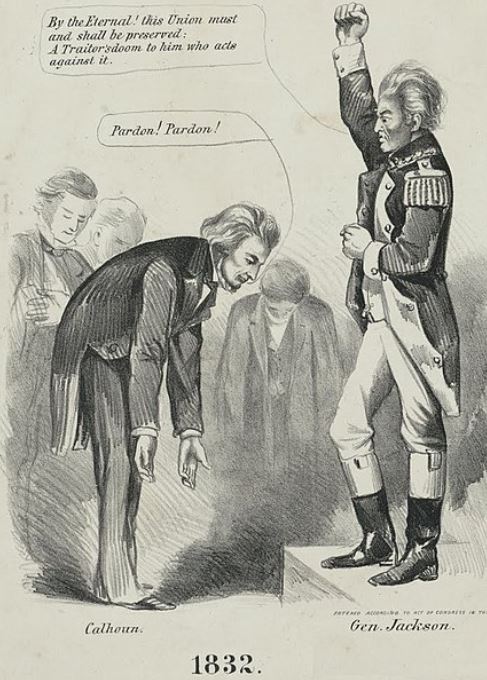
Andrew Jackson pushed Congress to pass the Force Bill, which authorized him to use military force to collect tariffs.
While he also worked towards a compromise tariff, the episode demonstrated his readiness to use federal power against individual states.
Ironically, while Andrew Jackson claimed to support states’ rights, his actions during the Nullification Crisis set a precedent for strong federal intervention.
This contradiction highlights the complex and often inconsistent nature of Andrew Jackson’s political philosophy.
5. Suppression of Free Speech
Andrew Jackson’s administration also took steps to suppress free speech, particularly when it came to the issue of slavery.

In 1835, Andrew Jackson’s Postmaster General Amos Kendall allowed Southern postmasters to destroy abolitionist materials in the mail.
This censorship was a clear violation of First Amendment rights. It also demonstrated Andrew Jackson’s willingness to placate Southern slaveholders at the expense of constitutional freedoms.
Andrew Jackson and his allies also attempted to silence political opponents. They used patronage and party discipline to punish those who spoke out against the administration’s policies.
This created a climate of fear and self-censorship within the government.
6. The Petticoat Affair
While not as consequential as some of his other actions, the Petticoat Affair illustrates Andrew Jackson’s tendency to blur the lines between personal matters and affairs of state.
The scandal revolved around the wife of his Secretary of War, John Eaton.
When Washington society ostracized Peggy Eaton due to rumors about her past, Andrew Jackson saw it as an attack on his administration. He forced his entire cabinet to resign over the matter, with the exception of Martin Van Buren.
This incident demonstrated Andrew Jackson’s willingness to prioritize personal loyalty over governmental efficiency. It also showed how he could turn a social issue into a political crisis, disrupting the functioning of the government for personal reasons.
7. Legacy of Authoritarianism
Andrew Jackson’s presidency left a lasting impact on the balance of power in the U.S. government. His expansion of executive authority set precedents that future presidents would use to justify their own assertions of power.
The idea of the president as the direct representative of all the people, which Andrew Jackson promoted, has been used to justify executive actions that bypass Congress or the courts. This concept of a powerful, populist president continues to shape American politics today.
Andrew Jackson’s disregard for the rights of Native Americans also set a troubling precedent. It demonstrated that a popular president could ignore the rights of minority groups with relative impunity, a legacy that would haunt American democracy for generations.
8. Andrew Jackson’s Legacy
Andrew Jackson’s presidency was a study in contradictions.
He presented himself as a champion of the common man and expanded voting rights for white males.
However, his actions often undermined democratic principles and the rule of law.
From the forced relocation of Native Americans to his war on the National Bank, from his expansion of executive power to his suppression of free speech, Andrew Jackson repeatedly demonstrated autocratic tendencies.
His willingness to use force, ignore court rulings, and prioritize personal loyalty over good governance all point to a leader with tyrannical inclinations.
The legacy of Andrew Jackson’s presidency is complex and contentious.
While he played a crucial role in shaping American democracy, he also set dangerous precedents for executive overreach and the treatment of minority groups. His impact on American politics and governance continues to be felt and debated to this day.
As we reflect on Andrew Jackson’s presidency, it serves as a reminder of the delicate balance between strong leadership and respect for democratic institutions. It also underscores the importance of checks and balances in preventing the accumulation of too much power in any one branch of government.
Andrew Jackson may have styled himself as a man of the people, but his actions often resembled those of a tyrant. His presidency serves as a cautionary tale about the dangers of unchecked executive power and the importance of protecting the rights of all citizens, not just the majority.
Further Reading
If you enjoyed this article about Andrew Jackson: The Tyrant President. You may be interested to read more about the early American history, such as:
- Did the Confederacy have the Legal Right to Secede from the Union?
- What Was the California Gold Rush of 1849?
- Who Owned Alaska Before Russia?
- Who Won the Battle of Alamo?
- Did the Mexican-American War lead to the Civil War?
You may also enjoy these articles about the early modern history:

